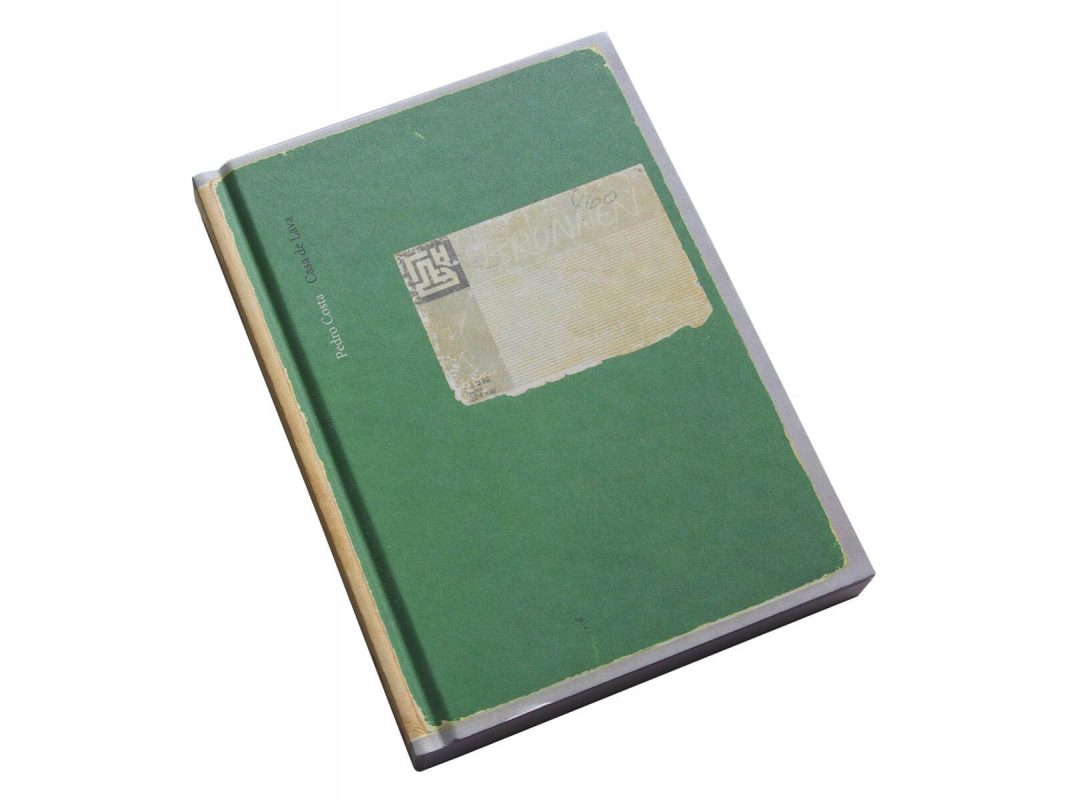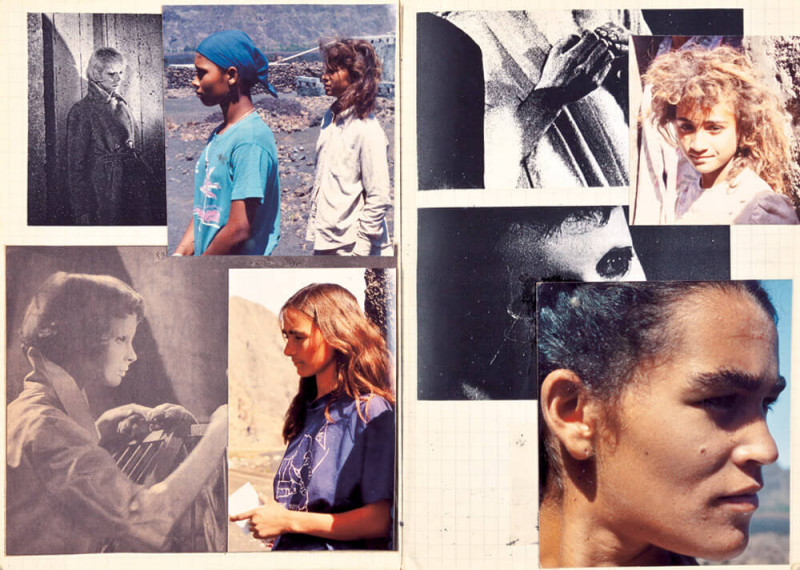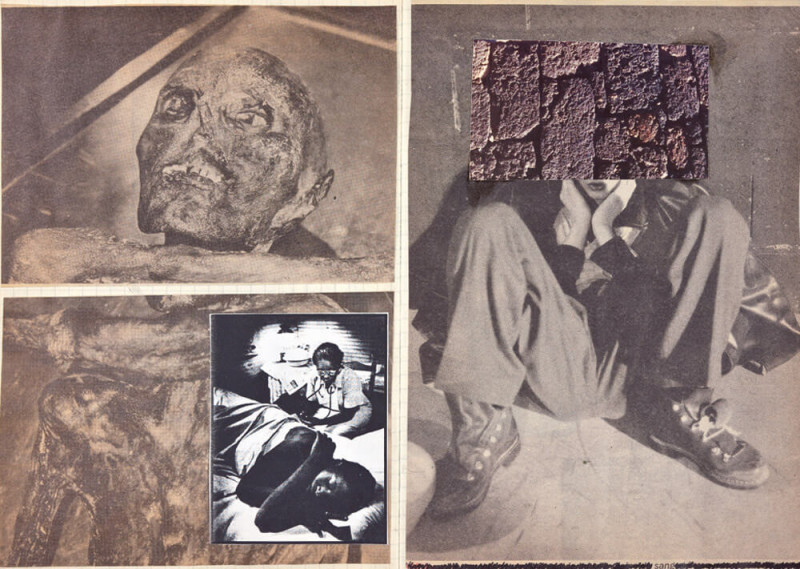Pedro Costa
Casa de Lava
Pierre von Kleist Editions
In 1992, Portuguese filmmaker Pedro Costa travelled to Cape Verde to research his forthcoming movie, Casa de Lava. He returned with a scrapbook filled with island ephemera: postcards and photographs; newspaper clippings and poems; a visual script collected – pictured here framed by the delicate lines of his dog-eared, grass-green notebook.
Following his disappointment with the final film, Costa returned to this material he amassed. It would become everything that the movie could not. Free from the constraints of film, from the supposed need for resolution – the obligatory beginning and end – the notebook became a cathartic object; a tattered rethinking of a troubled endeavour.
A little over twenty years later, Costa’s sketchbook has been published; a perfect copy of a once private journey. The battered edges and naked spine enclose a stream of connected and unconnected thoughts – a sometimes irrational sequence of emotions. Within are scuffed, overlapping photographs of faces, paintings on postcards and fragments of foreign newsprint, their relevant parts underlined by a wavering hand in blue.
The result is a not always coherent glimpse into the making of a film. After all, Costa has described the book as a warning sign. For him it predicts the erratic behaviour behind the scenes; his sabotage of the script, the actors, the producer and himself. The book is the critical conscience of the film then. Every image glued in then torn out is a burden; every scratch, every scribble a crisis.
There are mysteries, Costa says. Those little eccentricities of cinema that have fled the film to the book. Yes, it flows delicately and stops abruptly; it changes course then lingers momentarily. But the book does what the film cannot. Costa is free to re-imagine his story without restraint, ending with eleven untouched white pages. What remains is a memory, a guide, and a rediscovered story.
—Sean Stoker
All images courtesy of Pierre von Kleist. © Pedro Costa




